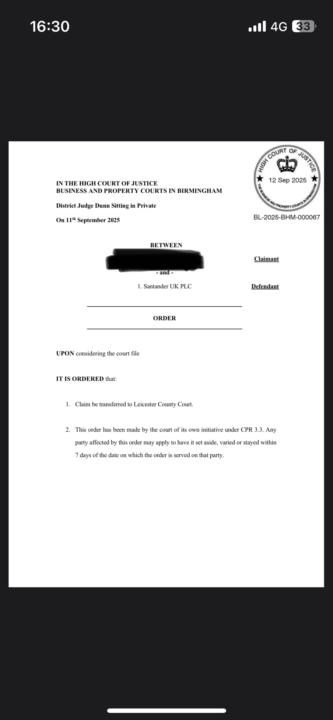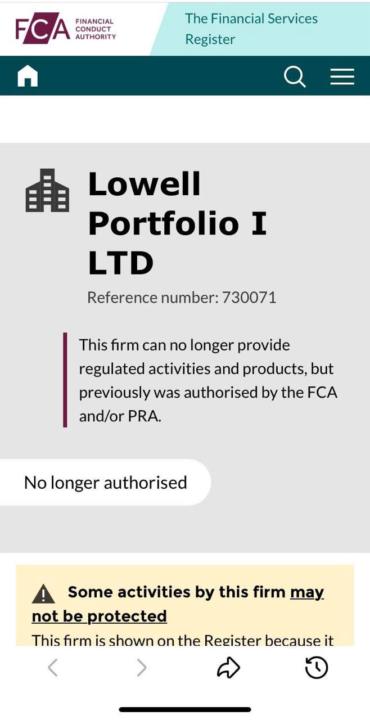Activity
Mon
Wed
Fri
Sun
Nov
Dec
Jan
Feb
Mar
Apr
May
Jun
Jul
Aug
Sep
What is this?
Less
More
Memberships
Checkmate The Matrix
588 members • $65/m
33 contributions to Checkmate The Matrix
Urgent chancery.
Further to the below appeal an update. I visited the Rolls building London today to submit a claim. Which initially was refused. The staff are helpful, I ended up with a manager (20yra experience), after pleading with two lesser clerks. He said ; you are entitled to have your claim placed in front of a master who will decide if the high court hears it. From talking to you, the points you are making are not obvious in the particulars or your letter. I can take your claim now and give it to the master but they will not read the bundle, only the particulars and only once.you don't have to Convince me but the master. Would you like me to? or would You like to review your claim, Ensuring all relevant case law in your bundle is in the particulars, and all relevant information is being presented. He also said you cannot speak to a master until then court has accepted your claim. Worth while outing. Earlier.…. Can anyone post a link to the practice direction ensuring I can file in chancery. Here now being Denied 😬 its with the commercial Lawyer reviewing it. Need the practice direction link 🤞🙏
3 likes • 12d
@Wendy Daden similar to yourself, however my case was accepted early August (I'd served Santander). Then find out i've been demoted down to County Court! *Something about the HC (Chancery) that scares them! So frustrating, took me almost a day to do N244/WS/SK obj/set aside recent demotion. Did n244 originally for BPC, then had to redo all the paperwork (For County Court) as the transfer was complete within just 4 days! @Margaret Ainscough has had similar... 😤
1 like • 10d
@Wendy Daden YES, they transferred me to 'County' giving 7 days to object. Thats what the above N244 was about, they did the transfer straight away! So my only choice after contracting BPC-Birmingham was to address the N244 to 'CC' to get it back with 'BPC'... Defo to wear us down... F'in 😤 BEEP!!
Edited
Claims sent to B&PC who ordered them to be sent to Preston County Court with 7 days to apply to be set aside, varied or stayed. I applied for them to be retained at Manchester well within the time limit but the papers had been sent to Preston immediately after the order. B&PC have informed me that my applications for set aside will go to the same judge despite asking for a high court judge to reconsider 🙄. Preston has issued my claims to the Defendants. The council has acknowledged service and is now being very nicey nicey in her emails. No response as yet from the solicitor. Edit: I have been notified by Weightmans LLP that they are now handling the case for the council!
WTF⁉️ - Any ideas… 🤯
*They last minute swapped out my GDPR/EQUITY Claim in HIGH COURT - Trying put me back in the lower courts! * Dear Sirs, Your case number BL-2025-BHM-000067, is to be transferred to Leicester County Court as it is not a matter for High Court. An order and transfer will be done in due course. Please note if I issue your other claims - 1) BILLY BOB v Cabot Financial (UK) Ltd and 2) BILLY BOB v Intrum & Capquest in the High Court they are likely to follow this one in being transferred to the County Court and should that happen it will build considerable delay into your claims being dealt with. You should consider whether or not you wish to issue in the High Court or whether you should issue in the County Court. You may want to seek independent advice. You can: Contact Citizens Advice for free, impartial advice. Information about the service they offer is available on their website: www.citizensadvice.org.uk/ Phone Civil Legal Advice on 0345 345 4 345. They can help find appropriate local advice services.

4 likes • 13d
The LEGAL system is an F'in energy LOOSH... Aren't there court rules that at least give 7 days, how are they allowed to do this automatically without consulting the applicant first? In this case the defendant has already been served for BPC-High Court as it was originally accepted since Early august! *There are court rules, but they don't prevent a court from acting on its own initiative to transfer a claim. The rules are designed to give the court flexibility in managing its caseload efficiently. Court's Authority to Transfer The court acted under CPR 3.3(4), which allows it to "make an order of its own initiative". The court decided that the case was not a matter for the High Court and transferred it to the County Court. The court doesn't need to consult the applicant first. The transfer order was made on September 11 (Email notification Sept 12th), and the court likely finalized the administrative steps shortly after. The Role of Service While Bob served Santander, the transfer order effectively changed the venue of the claim. The BPC is no longer the correct court, and Bob's application to object to the transfer must now be filed with the court that has jurisdiction over the case, which is Leicester County Court. The BPC email from Stuart Short is a clear instruction on this. Applicant's Recourse The rules don't give a 7-day window to object before a transfer. Instead, they give the applicant a legal avenue to challenge the decision after it has been made. That avenue is CPR 3.3(5), which allows a party affected by an order made on the court's own initiative to apply to have it "set aside, varied, or stayed". Bob's planned N244 application is the correct way to utilize this rule. By filing it with Leicester County Court, he can ask the judge to set aside the transfer and have the case returned to the High Court. 😤
Peter of England - My County N244 Experience (Intrum , Capquest)
My recent experience in Leicester County Court has been a frustrating but highly educational lesson in how these "zombie debt buyers" operate. I followed many of the core principles Peter of England (NEW VIDEO)😤 has outlined, yet the judge still granted a summary judgment against me, striking out my defense and ordering costs. This was a result not of the merit of my case, but of a minor technicality that highlights how these firms exploit procedural loopholes. The truth is, I had done everything right. I had a strong defense, built on meticulous research and key case law. I had sent multiple Notices of Conditional Acceptance and formal Subject Access Requests (SARs) as far back as 2023, consistently asking for proof of claim, such as the Deed of Assignment (DOA). Like a true litigant in person, I was asking for the documents to substantiate the claim, but Intrum consistently failed to respond to my SARs, and their agent Capquest provided contradictory and confusing documents that were full of errors and inaccurate data. My research, like Peter of England's, showed that without a valid Deed of Assignment (DOA) from the original lender (Virgin Money) to the debt buyer (Intrum), they have no legal title and, therefore, no standing to enforce the debt. I filed a formal N244 application to set aside the judgment, citing these failures, the FCA authorization issues (from the Intrum v Baldwin case), and my broader claim in the High Court for GDPR and equity breaches. My defense was solid and grounded in law. The Claimant's barrister, however, avoided these substantive issues and instead relied on a procedural technicality: the summary judgment was granted under CPR 3.4 (for striking out a defense), not CPR Part 12 (default judgment), so my N244 application was procedurally incorrect. The judge, without hearing my arguments, went with the Claimant's barrister's submissions, and the case was lost on that minor technicality. The lesson for our group is clear: these firms are not afraid of our legal arguments. They are afraid of us bringing them up. My case, where I asked for a witness from Intrum with "first-hand knowledge" of the debt, and the judge was still able to side with the barrister who had no knowledge of the case, is a stark reminder that they will do everything they can to bypass the core legal issues. We must not be discouraged. Instead, we must be more vigilant, and use their own procedural rules against them. My next step is to continue with my GDPR and equity claim in the Business and Property Courts, where the judge will be forced to hear these arguments on their full merits. We must get these cases into the correct courts that are designed to deal with these exact issues. I will keep the group updated on my progress.
WINNING or TACTICAL 🧐 Lowell Portfolio I Ltd are No longer FCA...
Lowell Portfolio I Ltd are No longer FCA registered: https://register.fca.org.uk/s/firm?id=001b000002sxwwhAAA

1-10 of 33
Active 2d ago
Joined May 14, 2025
Powered by



